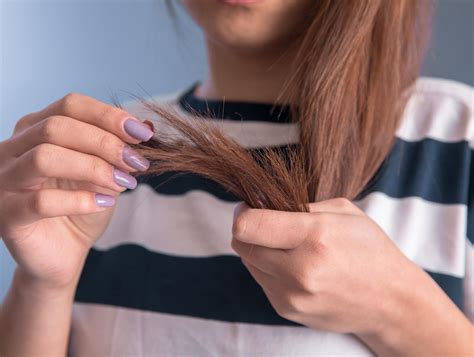Protein treatments have gained immense popularity in the haircare industry, promising to revitalize damaged and weak strands. This comprehensive guide delves into the science behind protein treatments, their benefits, types, and application techniques.

Why Protein Matters for Hair
Hair is primarily composed of a protein called keratin, which provides strength, elasticity, and shine. Harsh chemical treatments, heat styling, and environmental factors can deplete the protein content in hair, leading to breakage, dryness, and loss of elasticity.
Protein treatments replenish the protein supply in hair, repairing and strengthening the strands from the inside out. They create a protective layer around the hair shaft, preventing further damage and improving overall hair health.
Benefits of Protein Treatments
- Repair damaged hair: Protein treatments fill in gaps in the hair shaft caused by chemical or heat damage, restoring strength and elasticity.
- Strengthen weak hair: Protein treatments provide structural support to weak hair, making it less prone to breakage and split ends.
- Improve hair texture: Protein treatments smooth out the hair cuticle, reducing frizz and tangles, resulting in a silky and manageable texture.
- Enhance shine: Protein treatments reflect light more effectively, making hair appear glossy and radiant.
Types of Protein Treatments
Protein treatments vary in their composition and application methods, catering to different hair types and needs.
1. Hydrolyzed Keratin Treatments:
- Derived from keratin, the natural protein of hair
- Penetrate deep into the hair shaft, providing intense repair and strengthening
- Suitable for extremely damaged and chemically processed hair
2. Collagen Treatments:
- Derived from collagen, a structural protein found in connective tissue
- Help improve elasticity and moisture retention in hair
- Ideal for fine, brittle, and lackluster hair
3. Bond-Building Treatments:
- Contain heat-activated polymers that create new bonds within the hair shaft
- Repair broken bonds caused by chemical treatments or environmental damage
- Suitable for all hair types, particularly those with significant damage
Application Techniques
Professional protein treatments are typically performed in a salon, using specialized products and equipment.
1. Shampoo and Condition: Remove impurities from the hair using a clarifying shampoo and conditioner.
2. Apply Protein Treatment: Apply the protein treatment evenly throughout the hair, focusing on damaged areas.
3. Process: Depending on the treatment type, leave the product on for 15-30 minutes with or without heat activation.
4. Rinse and Style: Thoroughly rinse the hair to remove the treatment and style as desired.
Effective Strategies
1. Determine Hair Damage: Assess the extent of hair damage to select the appropriate protein treatment.
2. Use Quality Products: Choose high-quality protein treatments from reputable brands to ensure effectiveness.
3. Follow Instructions Carefully: Adhere to the application instructions provided by the manufacturer to achieve optimal results.
4. Avoid Overuse: Overusing protein treatments can lead to hair becoming brittle and prone to breakage. Limit treatments to once every 4-8 weeks.
5. Protect Treated Hair: Use heat styling tools with low heat settings and protect hair from environmental damage with UV protection sprays.
FAQs
1. Can protein treatments damage my hair?
When used correctly, protein treatments are not harmful to hair. However, overuse or using products not suited for your hair type can cause damage.
2. Are protein treatments suitable for all hair types?
Protein treatments are beneficial for all hair types, but those with severely damaged or chemically processed hair will see the most significant improvements.
3. How long do protein treatments last?
The longevity of protein treatments varies from a few weeks to several months, depending on the type of treatment and the frequency of hair washing.
4. Can I do protein treatments at home?
DIY protein treatments are available, but professional treatments offer more intense and lasting results. If using home treatments, follow the instructions carefully.
5. Are protein treatments safe for color-treated hair?
Yes, protein treatments are generally safe for color-treated hair, but it’s best to consult with a hairstylist to determine the appropriate product and application method.
6. Can protein treatments make my hair straight?
Protein treatments do not have a straightening effect. However, they can reduce frizz and improve hair texture, making it appear straighter.
Conclusion
Protein treatments are an effective way to restore and strengthen damaged hair. By replenishing the protein content in hair, these treatments provide numerous benefits, including repair, improved texture, and enhanced shine. With careful use and appropriate selection, protein treatments can transform your hair into the healthy and vibrant locks you’ve always desired.
